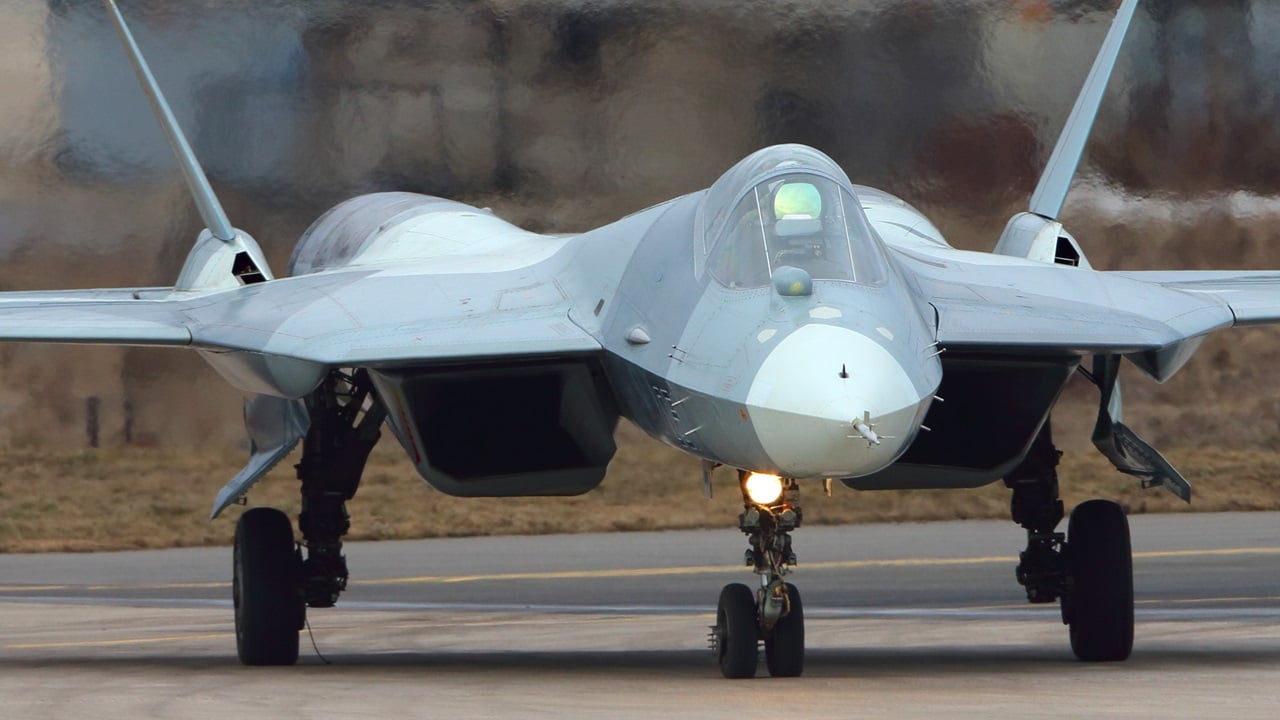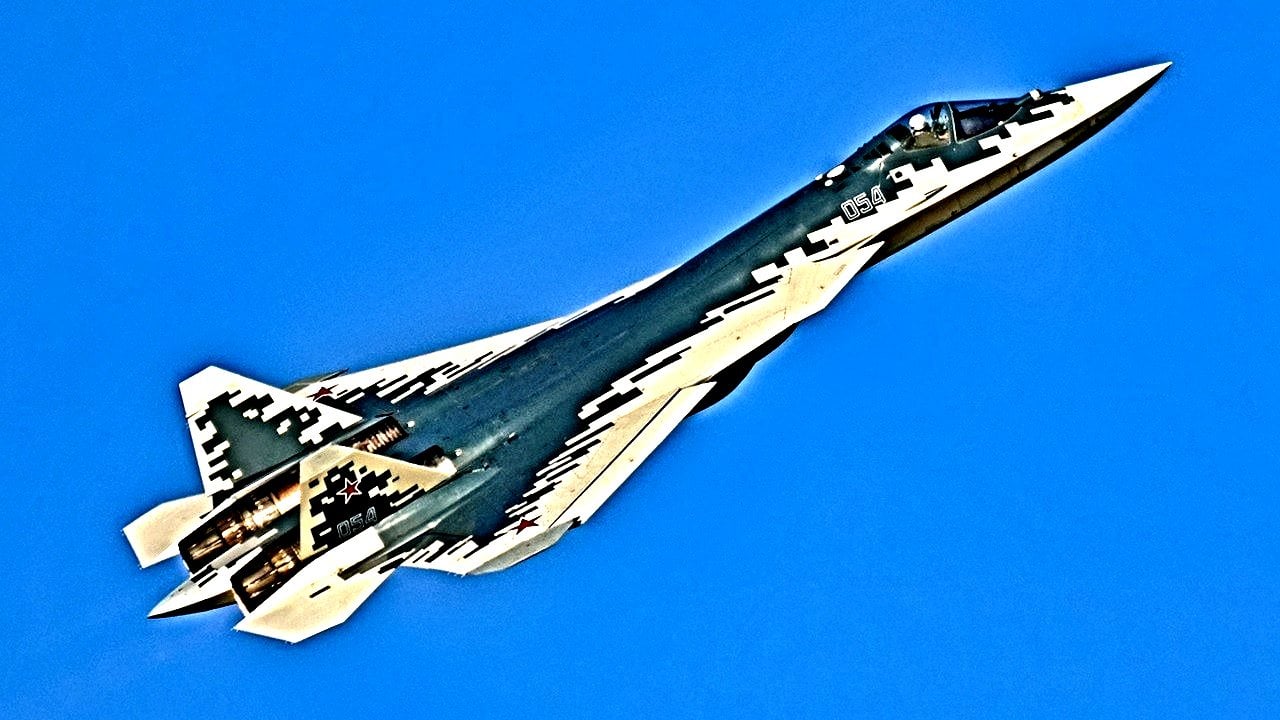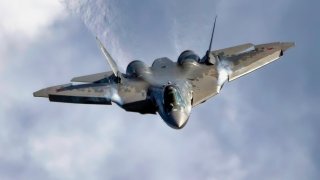Russia's Su-57 Felon Stealth Fighter Could Be Headed to Africa
Algeria has reportedly donated its surplus MiG-29 fighter jets to Sudan's Air Force in preparation for the arrival of Russia's Su-57 stealth jets. The move strengthens Algeria’s regional influence while modernizing its air force with advanced fifth-generation aircraft, making it the first nation outside Russia to operate the Su-57.
Summary and Key Points: Algeria has reportedly donated its surplus MiG-29 fighter jets to Sudan's Air Force in preparation for the arrival of Russia's Su-57 stealth jets. The move strengthens Algeria’s regional influence while modernizing its air force with advanced fifth-generation aircraft, making it the first nation outside Russia to operate the Su-57.
-The Su-57 will enhance Algeria’s air superiority, prompting potential upgrades by neighboring nations.
-Sudan will bolster its military with the MiG-29s, improving its air defense capabilities, though the acquisition may strain its budget. This deal reflects Russia’s growing influence in Africa and could shift regional geopolitics.
Algeria’s Strategic Move: MiG-29 Donation to Sudan Amid Su-57 Fighter Jet Acquisition
The Algerian Air Force has reportedly gifted its Russian MiG-29 jets to the Sudanese Air Force in anticipation of new imports, the Su-57. The move is consistent with Algeria’s recent efforts to modernize its air force, and to decommission its older aircraft, including the MiG-29.
“Rumors of Algeria potentially donating these surplus MiG-29 fighter jets suggest a strategic move to bolster relationships between the two countries,” Bulgarian Military reported. “Previously, Algeria has shown a willingness to provide military assistance to the region, underscoring its growing role in Africa.”
Further, the presence of Russian military equipment in Africa is consistent with Russian efforts to increase its footprint on the continent, a venue of untapped natural resources and increasing strategic importance, which has also attracted heavy attention from the Chinese.
Ramifications of the deal
The movement of the MiG-29 to Sudan, and the Su-57 to Algeria, has the potential to profoundly influence the geopolitics of the African continent. According to military analysts, the fifth-generation Su-57, “will provide Algeria with significant advantages in air operations, bolstering its status as a predominant force in North Africa.” The status upgrade could potentially inspire neighboring countries, like Tunisia and Morocco, to upgrade their own militaries.
Procurement of the Su-57 would make Algeria the first nation outside of Russia to operate the fifth-generation aircraft. Only 32 Su-57s have been built to date. The Su-57 is the first Russian aircraft built with stealth technology, and would be Algeria’s first stealth aircraft. While the Su-57 is scarcely available, the jet was featured prominently in the Top Gun sequel, as the unnamed, CGI-generated adversaries from the film’s conclusion.
Each Su-57 costs over $100 million. If Algeria acquires 14 Su-57s, as planned, the economic ramifications will be significant, and will likely force budget cuts in other areas of military spending.

Sudan, meanwhile, would also be bolstering their military with the acquisition of the MiG-29, a fourth-generation fighter. Sudan would gain the ability to “maintain airspace control, particularly amidst internal conflicts and rebel threats.” The MiG-29 is an older model, of course, but remains capable in an air superiority role – and will be a asset in a region not known for sophisticated military technology. At present, the Sudanese Air Force operates 166 aircraft, the most sophisticated of which is arguably the MiG-23 and the Su-25 – neither of which is exactly current relative to international standards.
Although the MiG-29s will be donated, Sudan will still need to pay for the maintenance and operations of the aircraft, which will strain an already strained budget.
The deal also has the potential to inspire countries like Saudi Arabia and the United Arab Emirates to more sharply focus on Sudan, where new aircraft could adjust spheres of influence.
In Sudan itself, the reaction to the deal may be mixed, “with some factions welcoming the external aid while others worry about increasing reliance on foreign powers and the potential strengthening of military rule.”

About the Author: Harrison Kass
Harrison Kass is a defense and national security writer with over 1,000 total pieces on issues involving global affairs. An attorney, pilot, guitarist, and minor pro hockey player, Harrison joined the US Air Force as a Pilot Trainee but was medically discharged. Harrison holds a BA from Lake Forest College, a JD from the University of Oregon, and an MA from New York University. Harrison listens to Dokken.
Image Credit: Creative Commons.


